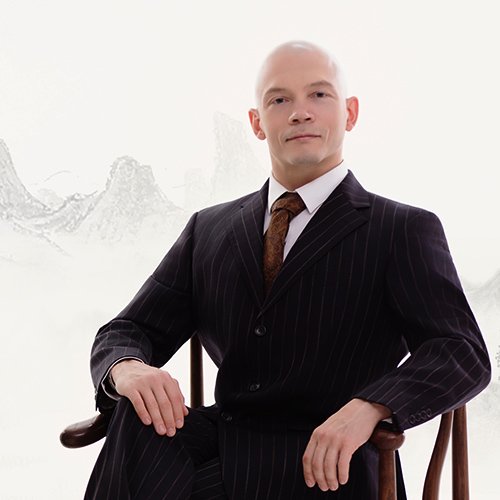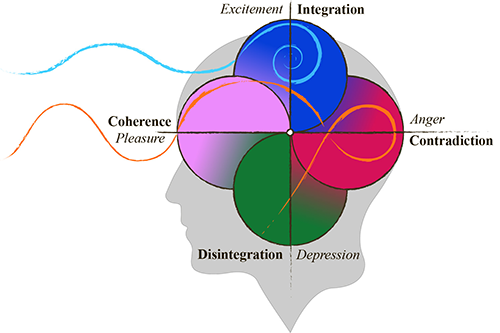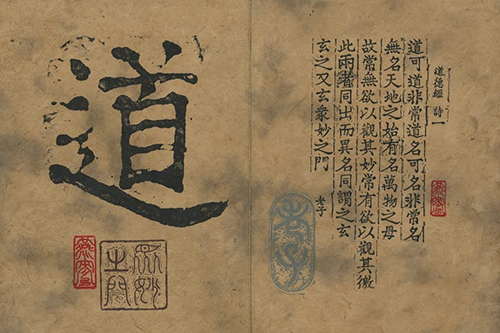Philosophy,
Culture, Consciousness
Explore Ilya Kanaev’s scholarly contributions in philosophy and science, where he delves into complex theories and innovative ideas that bridge the gap between traditional philosophy and contemporary scientific thought. His work reflects a deep commitment to understanding the nuances of both fields, offering insights that challenge and inspire future generations of thinkers. Through extensive research and eloquent articulation, Ilya Kanaev invites us to reconsider established norms and embrace a more profound understanding of our world, making his contributions not essential to the ongoing dialogue between philosophy and science, which is critical for the shared future of humanity.


Ilya A. Kanaev (汉伊理), was born in Russia, graduated from the Department of Philosophy at Lomonosov Moscow State University and later earned his PhD from the Russian Academy of Sciences. In 2015, he came to China and conducted postdoctoral research at Jinan University. From 2018 to 2024, he served as a Research Fellow in the Department of Philosophy at Sun Yat-sen University. Since 2024, he has been appointed as a Distinguished Professor at the Sun Tzu College of Shandong Aviation University and joined the Advanced Institute for Confucian Studies at Shandong University as a Qilu Visiting Scholar in the same year
Ilya Kanaev’s research covers a wide range of fields, including cross-cultural studies and the analysis of human consciousness within the context of contemporary scientific theories. He is highly active on international academic platforms, where he presents perspectives from Russian science and culture, and is dedicated to fostering mutual understanding and knowledge exchange between Chinese and Russian scholars. His efforts have played a significant role in deepening cultural recognition and enhancing scientific collaboration between the two countries.


In the natural sciences, Ilya Kanaev focuses on major theories of consciousness in cognitive science and neurophysiology, seeking to integrate them with anthropological concepts to provide a more comprehensive understanding of the mechanisms behind the formation of subjective reality—from simple life forms to the emergence of human consciousness. His research extensively incorporates modern anthropological findings to explore the evolutionary pathways of human consciousness. He also emphasizes the importance of preserving cultural traditions and diverse modes of thinking in an era of rapid globalization and technological advancement.
Research in Philosophy & Science
Theory of Consciousness
Integrating insights from philosophy, anthropology, and cognitive science to elucidate human consciousness as a function of the neural system that must be developed over a lifetime through socialization within a specific culture. This framework not only aids in comprehending the neural processes that underlie consciousness but also highlights the essential role of cultural diversity for the shared future and survival of humanity.


Discovering Cultures
As social beings, we need to be immersed in culture to fully grasp the skill of consciousness and embrace our humanity. It is therefore essential to understand how our culture shapes our thought processes. This understanding can only be attained by exploring cross-cultural philosophical discussions that enlighten us about the richness of human experiences and knowledge, highlighting its significance in the contemporary era of global political and technological change.
Life and Philosophy
Initially an endeavor to endure in a harsh world, human intellect and imagination have grown into a force capable of transforming our surroundings and reshaping the way we live. Nonetheless, we must remember the essence of life and the fundamental values that underpin our existence. The extensive wisdom of Chinese philosophical traditions has maintained core insights and deep understanding of human evolution from prehistoric eras to the present. It is immensely valuable to explore and glean knowledge from this legacy to grasp our identity and the direction in which we are headed.

Affiliation
Conducting in-depth research on consciousness and engaging in comprehensive cross-cultural studies in light of Confucian philosophy. This research delves into the intricate nuances of mental awareness and cultural perceptions while drawing connections to ancient teachings and their relevance in contemporary society. The aim is to understand how Confucian thought influences modern psychological frameworks and cultural interactions.
Sun Tzu Research Institute
Qilu Scholar
2024 – Present
Conduct lectures and organize forums on modern understanding of Chinese classics, with a particular focus on the Art of War. These sessions explore the historical context, key themes, and strategic insights embedded within these ancient texts, enriching the understanding of attendees from diverse backgrounds.
Academic Publications
lya Kanaev is committed to the study of traditional Chinese philosophy, consciousness theory, and cross-cultural philosophy. His primary area of publication focuses on contemporary theories of consciousness, cross-culture analysis, translation of Chinese classics, and the pre-Qin Chinese thought, especially the Book of Changes and Oracle Bones, as well as diverse philosophical perspectives.

Philosophy of Images [象 xiang]
The Book of Changes provides a unique method to address human perception using images. By combining visual representation of 8 trigrams it is possible to reveal hidden senses and address human consciousness directly through emotional perception. This allows us to mitigate the enduring problem of language that often falls short in conveying the depth and intricacies of human experience. By utilizing the rich symbolism inherent in trigrams, we can access a profound level of understanding that transcends mere words.
By using extensive experience in both Western and Chinese art, infused with profound philosophical insights, Ilya Kanaev skillfully employs methods of art to reveal philosophical senses, inviting the audience into a journey of exploration and introspection that challenges the boundaries of conventional thought. In doing so, he not only opens up new avenues for artistic expression but also encourages a reevaluation of how we perceive and interpret our emotional landscapes.
Book of Changes 《周易》
Written characters cannot fully convey speech,
Speech cannot fully express intentions:
Is it then impossible to discover the intentions of the sages?
The Master said: ‘The sages designed images to set forth fully their thoughts,
They appointed the hexagram symbols to fully express sincerity and falseness.”


